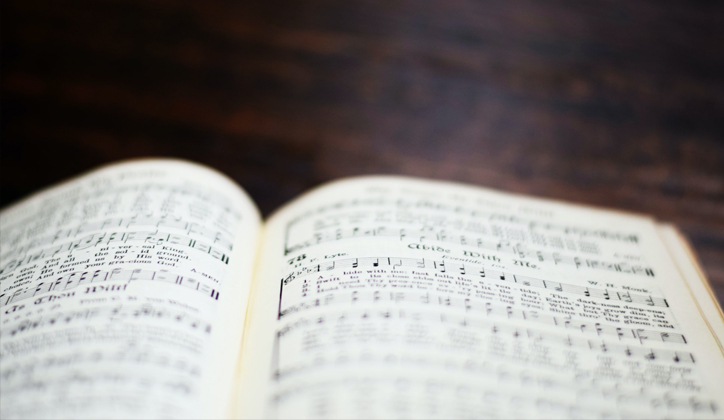We developed an elaborate system of categories and tagged all the songs we had ever sung into a highly technical filter. Our service planning meetings were structured by evaluating the tone of the upcoming sermon and asking, “What type of song should we sing? An uptempo, reflective, highly congregational one, or a mid-tempo, celebratory, less participatory one?”
There’s an art and science to structuring liturgy, order of service, and so on. However you do it, as long as you’re not looking to manipulate people and treat them like pawns for your platform, I think you’re alright. However, during this time of restriction, when the church cannot gather in person, the importance of finding the right songs to fit into your liturgy is earnestly important.
Singing Engages Our Soul
I don’t have the degree in psychology to explain why, but when we sing we open ourselves up to engage the deeper parts of who we are to the lyrics and the message of these songs. This isn’t just a phenomenon in the church — think about the songs sung in pubs, at sporting events, and at funerals that provide for those participating a deeper experience of community, therapy, and emotion than the spoken word can convey. This isn’t wrong; it simply points to the fact that we were built for singing.
Probably the most common expression of worship of God found in Scripture is singing, so what we sing matters; it conveys so much of our experience of God. Throughout church history, we’ve seen again and again (Exodus 15, The Psalms, Luke 1:46-55) that when God’s people gather, they sing (Psalm 96). We sing to reflect our personal and corporate experience of life in a fallen world, our hope in Christ, and the coming day when all will be made new. And when we do, we are comforted. Our faith is grown, and our joy in the Lord overflows because when we sing our soul and all of its longings are engaged and reminded of who our God is.
Know the Experience of Your People
As we plan worship during this time of restriction, we must take into account not just the tone of our sermons, or the components of our services, but also what the people who make up our churches are going through.
- Some churches have experienced widespread job loss and are filled with people who are fearful about how to provide
- Some churches have seen a spike in isolation among singles in their congregations and are seeing depression and anxiety issues explode
- Some churches have seen their people worked to the bone and are on the edge of burnout with the greater need among medical professionals
- Some churches are seeing parents struggle to keep their children engaged and healthy as they climb the walls out of boredom
- Some churches are seeing all of the above and have to diversify how they do church in ways that stretches their staff and leaders to the breaking point
In all of these varied realities among our congregants, what we sing must be shaped around them and what they’re going through. Pick songs that speak to the deeper needs of your people. Find songs with rich lyrics of hope, provision, comfort, and rest for the weary. Your church needs meaningful music more than great recordings, well mixed takes, and 1080p video of your worship leaders. They need the comfort of songs that meet them where they are and point their eyes and hearts to Jesus.
Trust the Lord
You’re not going to be able to craft the perfect service or find the perfect songs, but do your faithful, informed, and pastoral best to sing what is helpful. Then, as you always do, trust the Lord. He’ll take your offering of simplicity and multiply and magnify it in the lives of your people as the Holy Spirit meets them in their homes and ministers to them.
The Holy Spirit is our comforter (Acts 9:31) and our helper (John 15:26). As we sing, let us pray that he would be true to who he is (he will) and care for his people.

